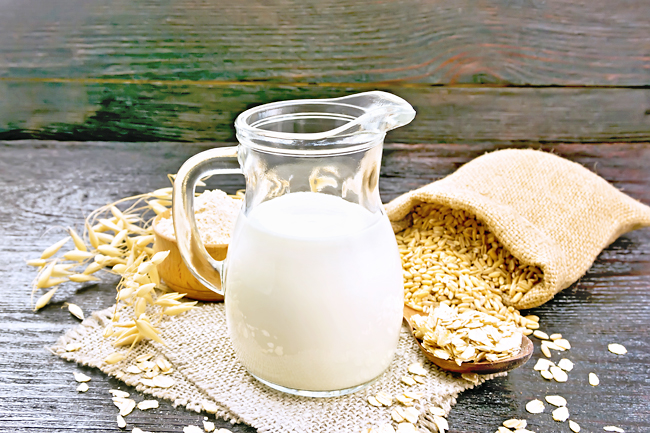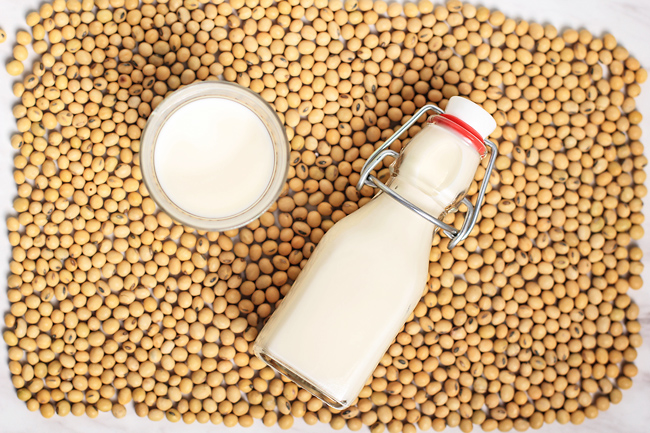Milk has held a cherished spot in our diets for as long as anyone can remember, often hailed as a nutritional cornerstone especially for growing children. However, with the rise of plant-based alternatives, more and more people are rethinking their relationship with traditional dairy.
While dairy milk remains a nutrient powerhouse, plant-based options are quickly becoming favourites for their health benefits and eco-friendly appeal.
But what really happens when you swap your usual glass of dairy for a plant-based version? Let’s dive into the nutritional perks of both, weigh the pros and cons, and explore how this shift might impact your body.
DAIRY MILK NUTRITIONAL POWERHOUSE
Dairy milk has long been praised for its rich nutritional profile. It’s naturally packed with calcium, which is essential for maintaining strong bones and teeth. In fact, just one glass of dairy milk can provide around 30 per cent of your daily calcium needs.
Beyond calcium, dairy milk is also a good source of protein, vitamin D, and B vitamins like B12. These nutrients are essential for maintaining muscle health, boosting your immune system, and keeping your energy levels up throughout the day.
The protein in dairy milk is complete, meaning it contains all the essential amino acids your body needs to repair and build tissues. This makes it an excellent choice for those looking to maintain muscle mass, particularly athletes or anyone on a fitness journey.
Additionally, the fat content in full-fat dairy milk can provide a source of energy and help with the absorption of fat-soluble vitamins such as A, D, E, and K.



PLANT-BASED MILK RISING
On the other hand, plant-based milk options such as almond, oat, soy and coconut milk have gained a loyal following in recent years. These alternatives offer a range of nutritional benefits, particularly for those with dietary restrictions or ethical concerns.
For starters, plant-based milk is often lower in calories and saturated fat than dairy milk, making it an attractive option for those looking to reduce their fat intake or manage their weight.
Additionally, plant-based milk is naturally free from lactose, making it a suitable alternative for those who are lactose intolerant or have dairy allergies.
Most commercially available plant-based milk is fortified with vitamins and minerals such as calcium, vitamin D, and B12, to ensure it offers a comparable nutrient profile to dairy milk.
Soy milk, in particular, stands out for its high protein content, which is similar to that of cow’s milk.
Almond milk is lower in calories but rich in vitamin E, an antioxidant that supports skin health. Meanwhile, oat milk is a good source of fibre, which can aid digestion and promote a feeling of fullness.
HEALTH BENEFITS
Switching from dairy milk to plant-based milk can bring about several health benefits, especially if you have specific dietary goals or health concerns. If you are lactose intolerant, for example, moving to a plant-based alternative can ease digestive issues such as bloating, gas or diarrhoea.
For those looking to lower their cholesterol levels, choosing a plant-based milk like almond or oat milk can be beneficial, as these options contain little to no saturated fat.
Furthermore, plant-based milk is often lower in calories, which could support weight management efforts when combined with a balanced diet. Almond and coconut milk, in particular, are lighter choices, ideal for those watching their calorie intake.
POTENTIAL DRAWBACKS
However, the switch isn’t without its drawbacks. While plant-based milk is often fortified with essential nutrients, it may not be as nutritionally dense as dairy milk in its natural state. For instance, the protein content in almond, oat, and coconut milk is typically lower than that of cow’s milk.
Soy milk is the closest in protein content, but some people prefer to avoid it due to concerns about phytoestrogens, which may mimic oestrogen in the body.
Another consideration is the sugar content. Some plant-based milk is sweetened or flavoured, which can add unnecessary sugars to your diet. It’s always best to check labels and opt for unsweetened versions if you’re watching your sugar intake.
SWITCH EXPECTATIONS
If you decide to make the switch from dairy to plant-based milk, you may notice a few changes in your body. First, if you’re lactose intolerant, you’ll likely feel more comfortable after meals, with fewer digestive problems. You may also find it easier to manage your weight if you’re consuming fewer calories or less saturated fat.
However, you might need to pay extra attention to your overall protein intake, especially if you’re very active. Including other plant-based protein sources like beans, lentils, or quinoa in your diet can help to make up for any shortfall.
Taste and texture are also factors to consider. Plant-based milk often has a thinner consistency than dairy milk, and the flavour can vary depending on the type. Some people find the nuttiness of almond milk or the creaminess of oat milk appealing, while others may need some time to adjust.
A PERSONAL CHOICE
Whether you choose dairy milk or plant-based alternatives ultimately comes down to personal preference and dietary needs. Both options have their own health benefits, and each can fit into a balanced diet.
If you’re considering making the switch, it’s important to choose a plant-based milk that suits your nutritional needs and lifestyle. Whether you’re seeking to lower your cholesterol, cut calories, or simply explore new flavours, the variety of plant-based milk options available means there’s something for everyone.
Ultimately, the key is to ensure you’re getting the nutrients your body needs, whether that’s from dairy or plant-based sources. Happy sipping! – Izah Azahari



















































